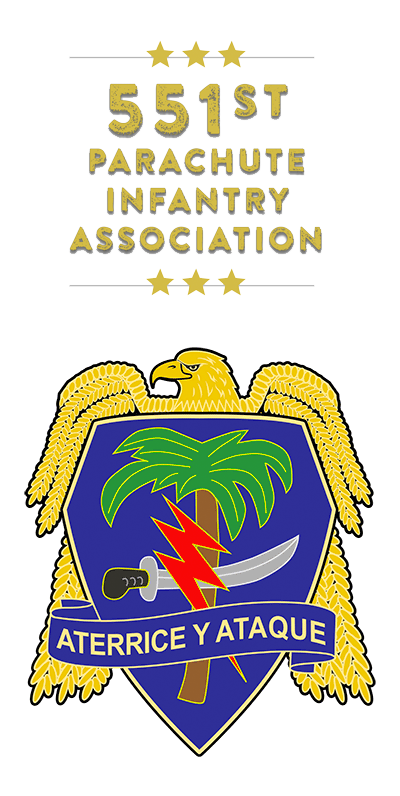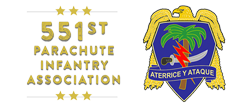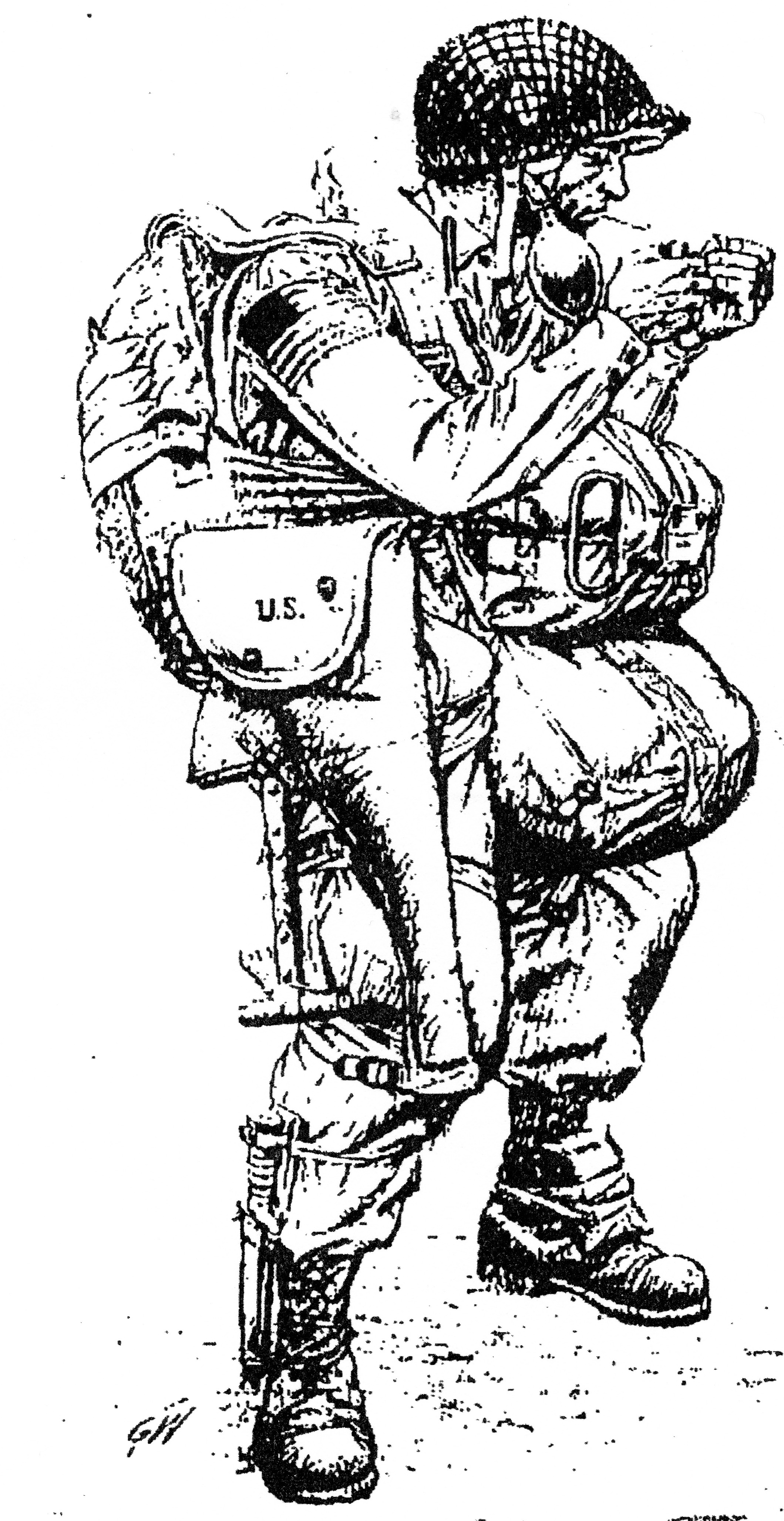
The Light Machine-Gun Platoon at Camp Mackall, fall of 1943, shared from ‘The Left Corner Of My Heart’.
A great description of a cross section of the men of the 551st Parachute Infantry Battalion was shared in ‘The Left Corner Of My Heart’ from the memoirs of Sgt Don Garrigues, Hq Company Light Machine Gun Platoon, dated 1980:
“We had guys like Woody McAda and ‘Pappy’ Smith, both around 32, who were considered old men. I don’t believe any of the officers were much over their early thirties, including the Colonel. There were a few men under 20, like Howard ‘Chief’ Davis, a full-blooded Indian who had lied about his age to get in the Army. Howard was only 17 when we were in Panama.
A few of our men were ex-convicts. They had been paroled from prison and allowed to volunteer for the paratroops on condition that if they served honorably they would be pardoned after the War. Frank ‘Bighead’ Powers was one of these. He fitted right into our platoon and performed his duties the same as anyone else. he told me that he had been in San Quentin Prison for armed robbery.
We also had professional boxers like Joe Chizar from South Bend, Indiana. His career was interrupted by the War. He never took advantage of anyone, and spent a lot of his own time coaching our Battalion boxing team. He was good natured and a good soldier.
Just about every nationality was represented. There were men of German descent such as Bernard Spletzer, T/Sgt in charge of the parachute riggers. ‘Duke’, as we called him, had grown up in Germany. Somehow he had decided to fight on our side even though his family was still in Germany and his father wore the Nazi uniform.
There was William Dumas, 1st Sgt of Hq Company, and Robert Dobart, S/Sgt in charge of the Mortar Platoon. They were both awarded the Soldier’s Medal for bravery in saving a pilot’s life when his aircraft crashed in the sea in Panama.
There was Donald O. Deere who was the most gentlemanly person you ever met until he had one drink, and then he became the most obnoxious person imaginable, changing personality completely into a hell-raising fighter. Several times I helped get him back to camp, but more often he was picked up by the MP’s and went to the guardhouse.
There was George D’Agostino who had been a lifeguard at Coney Island and an instructor for the Air Corps in Miami, Florida. He talked about all the movies stars he had met, and how he had taught calisthenics to Clark Gable. — And there was Lloyd Larkin, part-Indian from Tulsa, whose experiences would fill an encyclopedia. His unorthodox escapades (we had other names for them) resulted in his being busted so often that you never really knew what his rank was.
Each of us came from a different walk of life. Each was an individual — yet as a group we became as one: a combat team which had pride in itself and confidence that we could accomplish any task which might confront us.”


